What is Pakistan's favourite dish for iftar, sehri?
The favourite dish for iftar is fruit chaat, as 55% participants of a survey say they prefer it over anything else
April 15, 2021
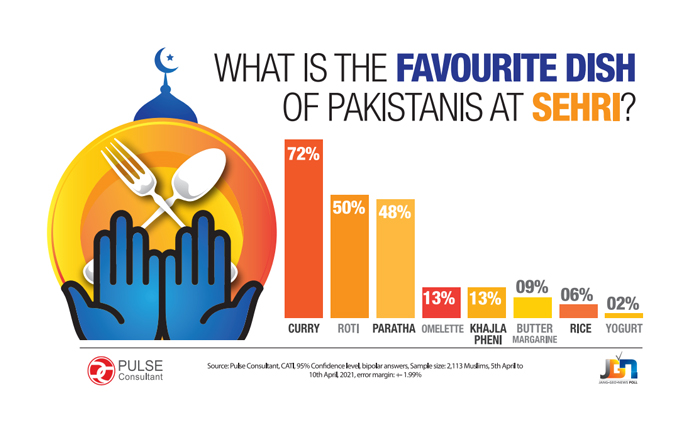
- The most favourite dish for iftar is fruit chaat, as 55% participants of a survey say they prefer it over anything else.
- For sehri, 72% opt for curry, 50% roti, 48% paratha, 13% omelette, and 13% khajla/pheni.
- Despite the third coronavirus wave, 63% say they will pray at mosques.
Preparation of traditional dishes begins full throttle with the commencement of Ramadan in Pakistan, with samosas, fruit chaat, pakoras, among other dishes made to reward the people who fast.
To dig deeper into what food Pakistanis love to have during the holy month, Pulse Consultants conducted a survey consisting of more than 2,000 individuals from across the country — between 5 April to 10 April 2021.
The best dish for iftar, it emerged, is fruit chaat, as 55% of the participants said they preferred it over anything else. This was closely followed by 52% saying they considered pakoras as their favourite dish, while 24% opted for samosas/rolls, 16% for dahi baray, 4% for chanay, 2% for jalaibee, and 2% preferring a full-fledged meal.
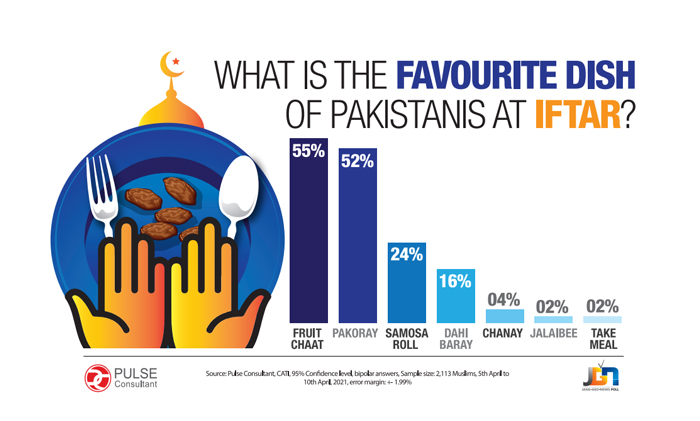
Similarly, for sehri, 72% opted for curry, 50% roti, 48% paratha, 13% omelette, 13% khajla/pheni, 9% butter/margarine, 6% rice, and 2% youghurt.
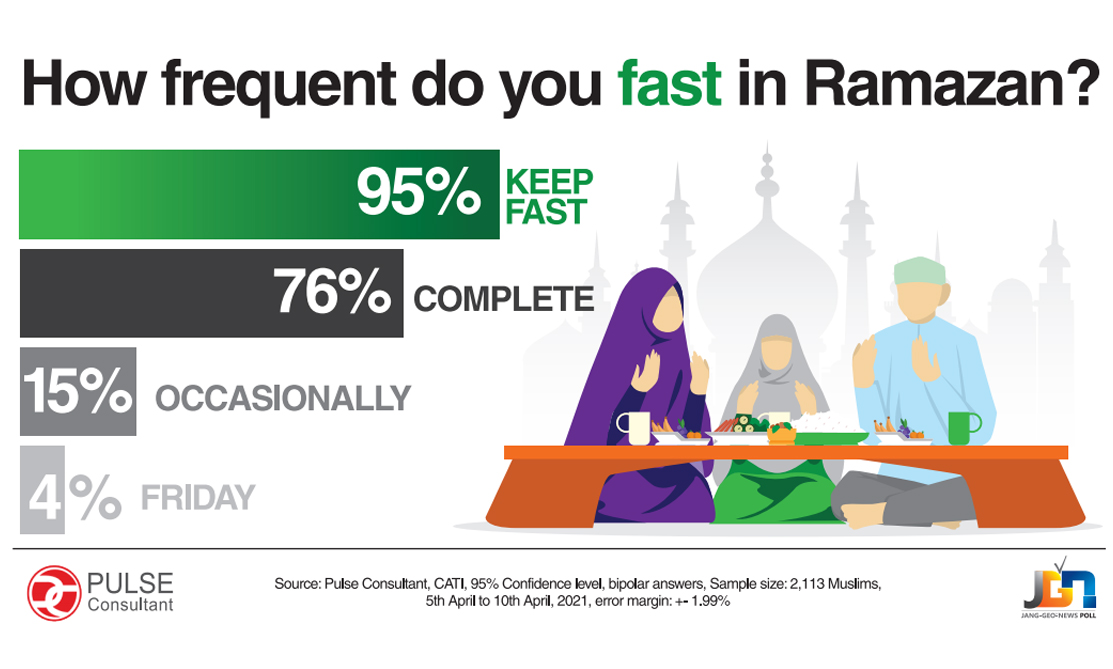
As this is the month of fasting, 95% said they intend to fast, while 76% said they would observe fast throughout the month, 15% said they would fast occasionally, and 4% said they would do so only on Fridays.
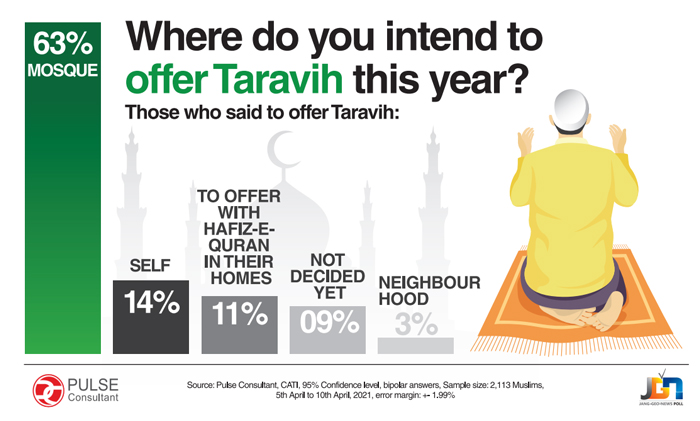
Despite the third coronavirus wave, 63% said they would pray at mosques, 14% said they would pray on their own, 11% said they would pray within their homes, 9% had not decided, while 3% said they would pray in their neighbourhoods.
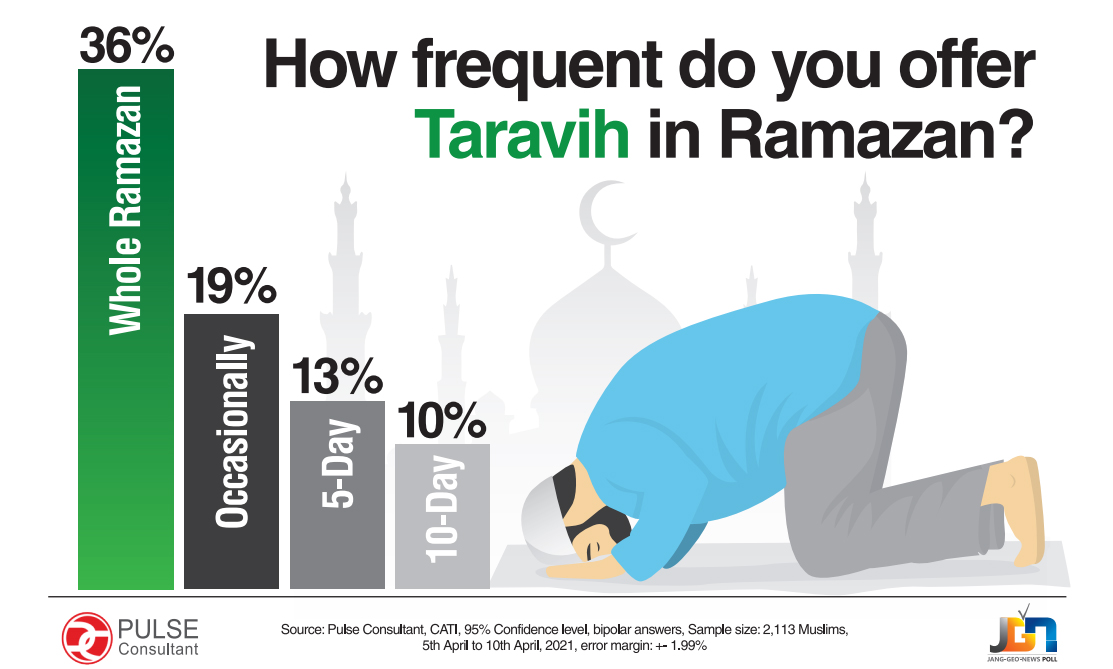
On the question of how frequently they plan on offering taraweeh, 36% said they intend to pray taraweeh throughout the month, 19% said they will do so occasionally, 13% said they will have a 5-day regimen, and 10% planned on having a 10-day schedule.
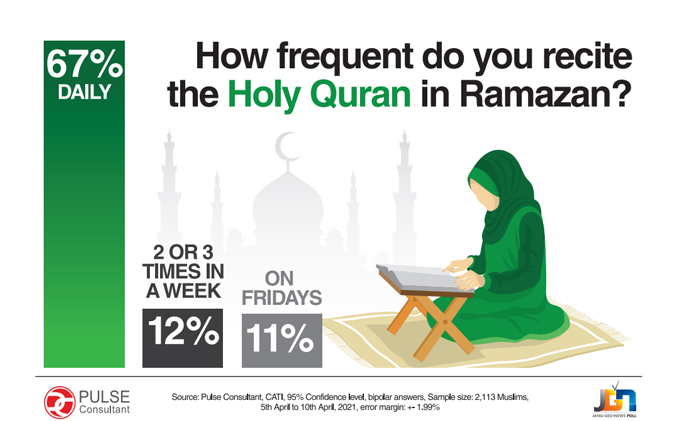
When asked about the recitation of the Holy Quran, the majority — 67% — said they would recite it daily, 12% said they would do so two or three times a week, and 11% said they would read the Holy Quran on Fridays.











